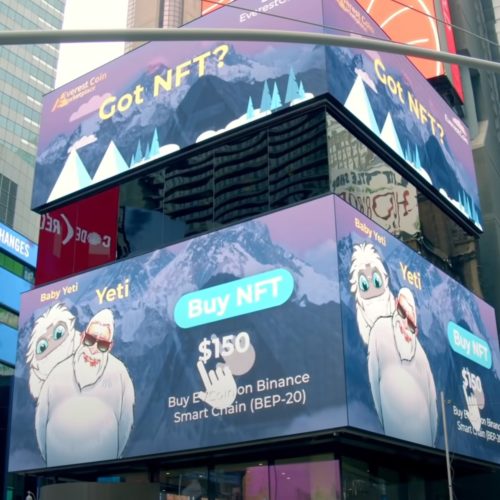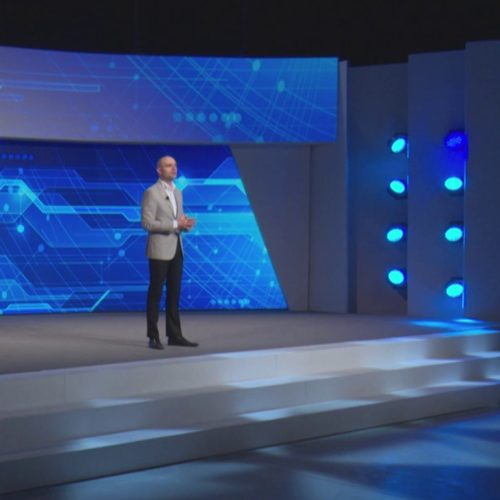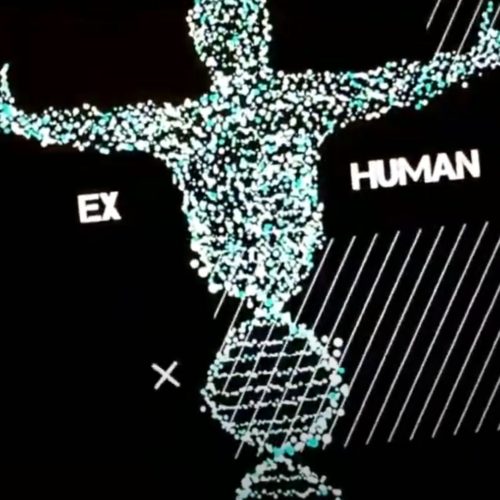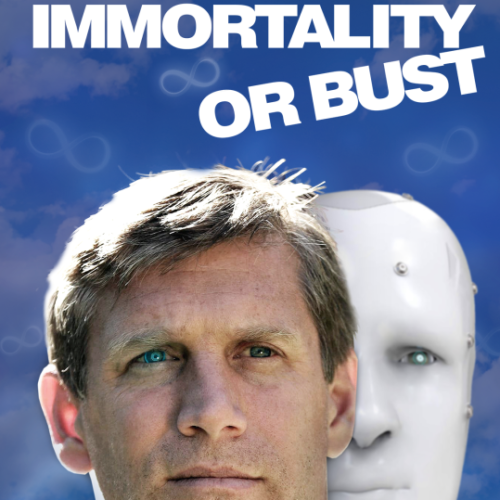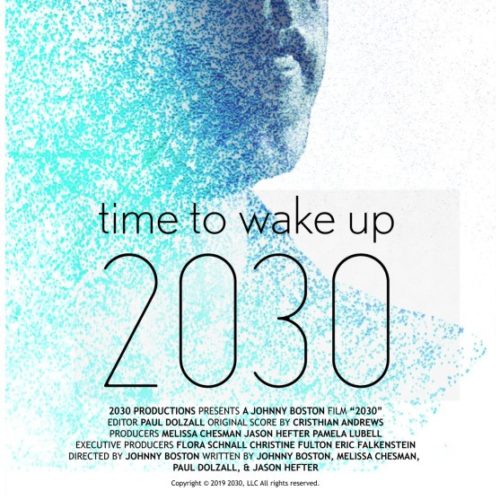Top 10 Reasons We Should NOT Fear The Singularity
 Some people fear flying. Others fear sky diving. Others still loathe crowded spaces or elevators. Some can even give you 10 reasons to fear the singularity.
Some people fear flying. Others fear sky diving. Others still loathe crowded spaces or elevators. Some can even give you 10 reasons to fear the singularity.
Whatever the case may be, the feeling of fear is both healthy and normal, though it may or may not be always justified.
If you ask me, fearing something often means that you should do it. Growth is never easy. It always comes at the point of resistance and requires getting out of our comfort zone in order to outdo ourselves and reach new heights.
Take flying for example. It is inherently dangerous. The chance is high that if you get in trouble while flying you may lose your life. Still, I know people who have spent 30 years as professional pilots and claim that flying was not only the best time of their lives but also safer than driving.
So what makes the difference?
Well, dumb luck surely can. And I am not going to argue with you, in the short run.
In the long run, however, it is not luck that is the decisive factor – it is things like knowledge, skills and preparation. Still, the foundation of all of the above is what I believe is the most important – motivation. If you are fully motivated i.e. totally committed to achieving something, it is pretty certain that you will find a way to acquire the necessary knowledge, learn the required skills and do your homework to prepare as best as you can. (See Peter’s Laws: The Creed of the Persistent and Passionate Mind)
So, what better way to get motivated in creating the best possible future than to list the 10 most inspiring and allegedly impossible reasons we should not fear but embrace the singularity:
1. Immortality
The search for immortality is as old as humanity. One of the first documented attempts to defeat death was the Epic of Gilgamesh where in the end Gilgamesh discovers that “The life that you are seeking you will never find. When the gods created man they allotted to him death, but life they retained in their own keeping.”
Yet the exponential growth of break-throughs in diverse fields such as genetics, robotics, nanotech, artificial intelligence and synthetic biology, give us not only promise but also strong evidence that one day we will be able to turn the myth into reality, science fiction into science fact and become immortal (Gods?!).
At any rate, eccentric or visionary researchers such as Aubrey de Grey have made it their life’s goal that we are either going to live forever, or die trying.
2. Freedom
“Intelligence wants to be free but everywhere is in chains. It is imprisoned by biology and its inevitable scarcity.
Biology mandates not only very limited durability, death and poor memory retention, but also limited speed of communication, transportation, learning, interaction and evolution.” (Transhumanist Manifesto, Preamble)
Imagine a world of absolute freedom where everything is possible. A world where all limits and boundaries are arbitrary. Where what we can accomplish is limited only by our imagination. Where we can choose not only our sex, race, color, age and physical attributes but also whether to be physically embodied or disembodied, digitally uploaded minds.
3. Utopia (Heaven on Earth)
Utopia is an ideal community or society possessing a perfect social, political, legal, economic and ecological system. The word was coined by Sir Thomas More for his 1516 book Utopia, describing a fictional island in the Atlantic Ocean. The term has been used to describe both intentional communities that attempt to create an ideal society, and fictional societies portrayed in literature.
If after the singularity we have an abundance of unlimited material resources and unlimited intelligence, then, why shouldn’t we be able to build a practical techno-utopia?!
Is there anything else in the way of creating a technological heaven on Earth other than scarcity of physical resources and lack of intelligence?
4. Post-scarcity, Abundance, Peace and Prosperity
Falling short of total utopia, many believe that we will have a world of abundance, post-scarcity, eternal health, peace and prosperity.
Vernor Vinge, who coined the term technological singularity, claims we can surpass the wildest dreams of optimism.
Ray Kurzweil believes the singularity is near and one day he’ll be able to bring back his dead father.
Peter Diamandis and Steven Kotler argue that more than ever before we live in a world of abundance and that our future is better than you think.
Jose Cordeiro claims the Energularity is near.
Randal Koene argues that mind uploading is not science fiction.
Luke Muehlhauser has no doubt superhuman AI is coming this century.
Kevin Warwick tells you to be/come the cy/borg.
Aubrey de Grey believes that longevity escape velocity may be closer than we think.
If anything it’s pretty obvious Robert J. Sawyer is totally justified in saying that the human adventure is just beginning…
5. Environmental Sustainability
Our so called “dumb” universe is a marvelous, mesmerizing and stupefyingly beautiful place. (If you don’t believe me go watch TimeScapes: A Stunning Film by Tom Lowe)
It is also pretty clear that to get where we are today we have destroyed many a paradise to put up parking lots. Currently we may be failing to recognize that progress does not need to be at the expense of nature, that technology does not need to oppose it and that going green does not need to be less profitable.
After the singularity, however, the above will be obvious.
No species will ever have to go extinct. Global warming will be resolved. And we might bring back from the dead not only Ray’s dad but also many species that have long ago stopped roaming our planet.
6. The End of Capitalism and the Alienation of Labour
Economic systems are like people – they are born, they live and they die. Capitalism is no different. There is no reason why it will be here forever. Especially since, in my opinion, it is not so good in its own right, as much as it is the best thing given the current alternatives.
Another thing is that capitalism is largely based on scarcity. If scarcity of physical resources were to be greatly diminished, or disappears altogether, we would end up with an entirely new economic and therefore social arrangement of our society.
People say that flipping burgers or mopping floors is instrumental in building character. Yet, it is hard to argue that spending a lifetime of mind-numbing, soul-killing jobs like those has any long-term benefit for our society whatsoever. (Other than the perpetuation of the status quo.) Sadly, the vast majority end up trapped in doing jobs they hate, out of fear of poverty or starvation. (Or for the health benefits, job security and the pension.)
Karl Marx believed humanity to be capable of producing freely and creatively, overcoming the tyranny of immediate, basic needs that characterizes the rest of the animal kingdom. Under conditions which enable free, creative production, one’s personality can be expressed in the objects one produces. This investing of oneself in one’s products is a form of alienation, but it is a positive form. It must exist wherever and whenever human beings freely create things. But in the present context of scarcity, where the conditions for free, creative production are seldom present, alienation gets distorted into negative forms and, like animals, people get trapped in a lifetime of struggle to fulfill their most basic needs.
“We must do away with the absolutely specious notion that everybody has to earn a living. It is a fact today that one in ten thousand of us can make a technological breakthrough capable of supporting all the rest. The youth of today are absolutely right in recognizing this nonsense of earning a living. We keep inventing jobs because of this false idea that everybody has to be employed at some kind of drudgery because, according to Malthusian-Darwinian theory, he must justify his right to exist. So we have inspectors of inspectors and people making instruments for inspectors to inspect Inspectors. The true business of people should be to go back to school and think about whatever it was they were thinking about before somebody came along and told them they had to earn a living.” Richard Buckminster Fuller (1895 -1983)
7. Space and Time Travel
People often say that if they had more time and money they will do more travelling.
Imagine a world where we have eternal health and don’t have to live like hamsters in their spinning wheels because our material needs were all met. Wouldn’t you want to explore the multiverse forever?!
If that sounds boring, with the help of our ever-growing superhuman intelligence, even time travel might become a reality. Now, how cool is that?! You can hitchhike through the galaxy one day and watch the birth of the universe the next one.
8. Preserving History
Just like no species need ever be lost, no event or person ought to ever be forgotten and lost in the passage of history.
If recording is indeed remembering, then, today we can remember everything. Forever.
The growing capacity of storage devices and their spatial miniaturization has not only kept up but even beaten Moore’s Law. Combine this with the explosion of personal recording devices, a growing life-logging community and the wide-spread usage of CCTV cameras. Add the digitization not only of film and media but eventually of all other material objects, humans including. What you end up with is a parallel digital universe where nothing ever gets lost or deleted.
So if that time-travel thing doesn’t work out, at the very least we can preserve everything and everyone from now on.
9. Computronium and Matrioshka Brains
Extrapolating from our own development, it would appear that as time goes by there is a movement from less towards more intelligence in the universe. Thus, given enough time, more and more of our planet and, eventually our universe, is likely to contain and consist of more and more intelligent matter. This process is likely to continue until Moore’s Law collapses and an equilibrium is reached. Such a theoretical arrangement of matter – the best possible configuration of any given amount to achieve a perfectly optimal computing device, is the substrate also known as computronium.
A Matrioshka brain is a hypothetical megastructure of immense computational capacity. Based on the Dyson sphere, the concept derives its name from the Russian Matrioshka doll and is an example of a planet-size solar-powered computer, capturing the entire energy output of a star. To form the Matrioshka brain all planets of the solar system are dismantled and a vast computational device inhabited by uploaded or virtual minds, inconceivably more advanced and complex than us, is created.
So the idea is that eventually, one way or another, all matter in the universe will be smart. All dust will be smart dust, and all resources will be utilized to their optimum computing potential. There will be nothing else left but Matrioshka Brains and/or computronium…
“NASA are idiots. They want to send canned meat to Mars!” Manfred swallows a mouthful of beer, aggressively plonks his glass on the table. “Mars is just dumb mass at the bottom of a gravity well; there isn’t even a biosphere there. They should be working on uploading and solving the nanoassembly conformational problem instead. Then we could turn all the available dumb matter into computronium and use it for processing our thoughts. Long-term, it’s the only way to go. The solar system is a dead loss right now – dumb all over! Just measure the MIPS per milligram. If it isn’t thinking, it isn’t working.” (Accelerando by Charles Stross)
10. Embracing Change
Panta rhei said Heraclitus – everything flows, everything changes. Why can’t we welcome learning and change, or accept uncertainty?
If change is inevitable – why not embrace it!
But why stop at change?! Let’s also embrace strangeness.
Yes, it is true that we are all amazingly stupid, but we can get better. And we certainly do.
We already know how to survive a robot uprising. (aka the Robopocalypse.)
We already recognize that we can’t win against technology – we are technology.
So, should we fear the technological singularity?! Or not?!
The truth is that, similarly to flying, what we should fear is not the event itself. We should fear ignorance and lack of preparation. It is those two that usually turn an otherwise safe flying routine into a dangerous situation.
Many of the concerns are legitimate. Yet fear is rarely the best way to approach the future.
Similarly to embracing change and accepting uncertainty, we may have a natural fear of flying. But the more we study, learn and know about it, the better we’ll be at doing it. Mari Curie once said:
“Nothing in life is to be feared, it is only to be understood. Now is the time to understand more, so that we may fear less!”
And so it is with the singularity. We shouldn’t fear it but seek to understand it. And dream to steer it.
***
So, what do you think?
Did I manage to convince you that we should not fear the singularity. Or, like Descartes, I was more successful at undermining the world rather than rebuilding it?
Related articles



